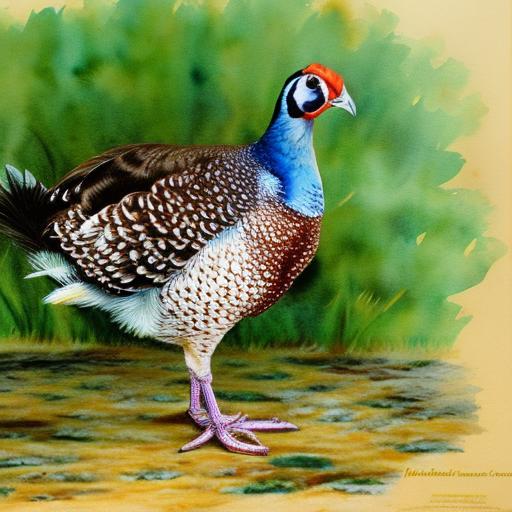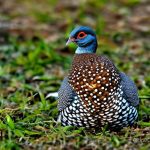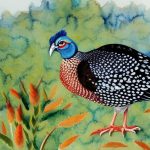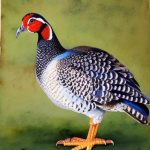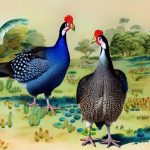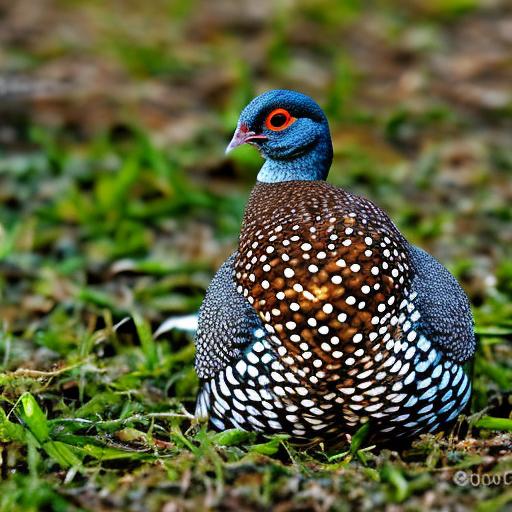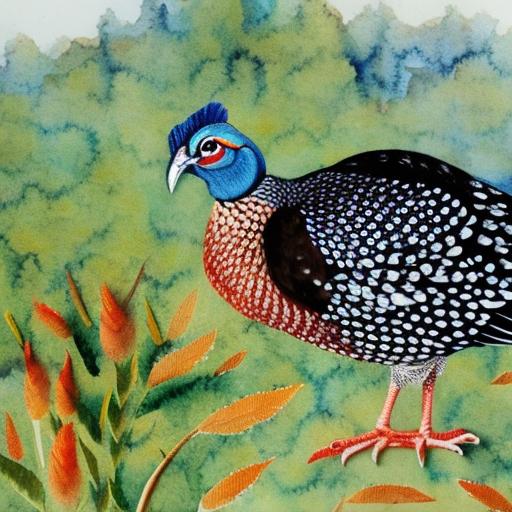Guinea fowl, also known as pintades, are a type of poultry that are native to Africa. They are known for their distinctive appearance, with their speckled feathers and helmet-like casque on their heads. Guinea fowl are popular for their ability to control pests, such as ticks and insects, making them a valuable addition to farms and gardens. There are several different breeds of guinea fowl, each with its own unique characteristics and qualities. These breeds vary in size, coloration, and temperament, making it important for potential owners to choose the right breed for their specific needs.
Guinea fowl are hardy birds that are well-suited to a variety of climates and environments. They are known for their loud calls and alert nature, which makes them excellent watchdogs for the farm. Guinea fowl are also valued for their delicious meat and nutritious eggs, making them a popular choice for small-scale poultry production. With their striking appearance and practical benefits, guinea fowl breeds are a unique and valuable addition to any farm or homestead.
Key Takeaways
- Guinea fowl are a unique and fascinating breed of poultry known for their pest control abilities and flavorful meat.
- Guinea fowl are hardy, low-maintenance birds that are excellent foragers and can thrive in a variety of climates.
- The top 10 guinea fowl breeds include the Helmeted, White, Lavender, Pearl, and Coral Blue varieties, each with its own distinct characteristics.
- For egg production, the best guinea fowl breeds are the Pearl, White, and Lavender varieties, known for their consistent egg laying and good maternal instincts.
- When it comes to meat production, the Helmeted and Coral Blue guinea fowl breeds are popular choices due to their large size and flavorful meat.
- For pest control, all guinea fowl breeds are effective, but the Helmeted and White varieties are particularly known for their voracious insect-eating habits.
- When choosing the right guinea fowl breed, consider your specific needs for egg production, meat production, or pest control, and select a breed that aligns with those priorities.
Characteristics of Guinea Fowl
Guinea fowl are known for their distinctive appearance, with their speckled feathers and helmet-like casque on their heads. They come in a variety of colors, including pearl, lavender, royal purple, and white. Guinea fowl are medium-sized birds, with a compact body and strong legs that make them excellent runners and flyers. They are hardy birds that are well-suited to a variety of climates and environments, making them a popular choice for small-scale poultry production.
Guinea fowl are known for their loud calls and alert nature, which makes them excellent watchdogs for the farm. They are highly social birds that thrive in flocks, and they are known for their strong flock instincts. Guinea fowl are also valued for their ability to control pests, such as ticks and insects, making them a valuable addition to farms and gardens. With their striking appearance and practical benefits, guinea fowl are a unique and valuable addition to any farm or homestead.
Top 10 Guinea Fowl Breeds
1. Helmeted Guinea Fowl: The most common and widely recognized breed of guinea fowl, the helmeted guinea fowl is known for its distinctive appearance, with its speckled feathers and helmet-like casque on its head. They are hardy birds that are well-suited to a variety of climates and environments, making them a popular choice for small-scale poultry production.
2. White Guinea Fowl: This breed of guinea fowl is known for its striking white plumage, which sets it apart from other breeds. White guinea fowl are valued for their meat production and are often raised for their delicious and nutritious meat.
3. Lavender Guinea Fowl: Lavender guinea fowl are known for their unique coloration, with a soft lavender hue to their feathers. They are valued for their striking appearance and are often raised for ornamental purposes.
4. Royal Purple Guinea Fowl: This breed of guinea fowl is known for its deep purple plumage, which gives it a regal and striking appearance. Royal purple guinea fowl are often raised for ornamental purposes and are valued for their unique coloration.
5. Pearl Guinea Fowl: Pearl guinea fowl are known for their classic speckled appearance, with a mix of white and black feathers that give them a distinctive look. They are hardy birds that are well-suited to a variety of climates and environments.
6. Coral Blue Guinea Fowl: This breed of guinea fowl is known for its beautiful blue plumage, which sets it apart from other breeds. Coral blue guinea fowl are often raised for ornamental purposes and are valued for their striking appearance.
7. Buff Dundotte Guinea Fowl: Buff dundotte guinea fowl are known for their unique buff coloration, with a mix of light brown and white feathers that give them a distinctive look. They are hardy birds that are well-suited to a variety of climates and environments.
8. Chocolate Guinea Fowl: This breed of guinea fowl is known for its rich chocolate brown plumage, which gives it a unique and striking appearance. Chocolate guinea fowl are often raised for ornamental purposes and are valued for their beautiful coloration.
9. Jumbo Guinea Fowl: Jumbo guinea fowl are larger than other breeds of guinea fowl, making them an excellent choice for meat production. They are hardy birds that are well-suited to a variety of climates and environments.
10. French Guinea Fowl: French guinea fowl are known for their elegant appearance, with a sleek and slender build that sets them apart from other breeds. They are hardy birds that are well-suited to a variety of climates and environments.
Guinea Fowl Breeds for Egg Production
When it comes to egg production, some guinea fowl breeds stand out from the rest. The Pearl Guinea Fowl is one such breed that is valued for its ability to lay large quantities of eggs. These eggs are smaller than chicken eggs but have a rich flavor and high nutritional value. The White Guinea Fowl is another breed that is prized for its egg-laying abilities. These birds can lay up to 100 eggs per year, making them a valuable addition to any farm or homestead.
In addition to the Pearl and White Guinea Fowl, the Lavender Guinea Fowl is also known for its egg-laying abilities. These birds can lay up to 60 eggs per year, making them a popular choice for small-scale egg production. With their striking appearance and practical benefits, these guinea fowl breeds are an excellent choice for those looking to raise poultry for egg production.
Guinea Fowl Breeds for Meat Production
Guinea fowl are also valued for their delicious meat, making them a popular choice for small-scale meat production. The Jumbo Guinea Fowl is one breed that stands out for its meat production capabilities. These birds are larger than other breeds of guinea fowl, making them an excellent choice for those looking to raise poultry for meat.
The White Guinea Fowl is another breed that is prized for its meat production abilities. These birds have tender and flavorful meat that is highly sought after by chefs and home cooks alike. In addition to the Jumbo and White Guinea Fowl, the Chocolate Guinea Fowl is also known for its meat production capabilities. With their rich chocolate brown plumage and delicious meat, these birds are an excellent choice for those looking to raise poultry for meat production.
Guinea Fowl Breeds for Pest Control
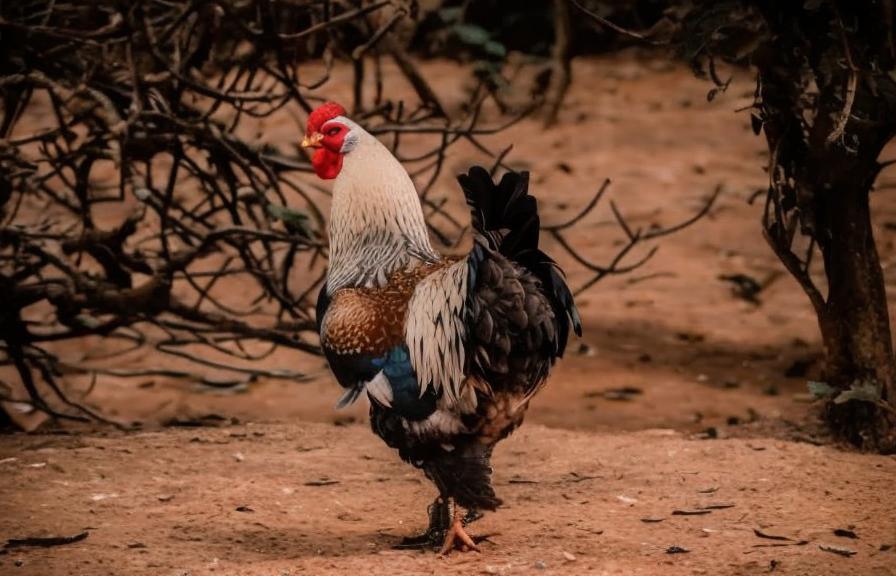
One of the most valuable qualities of guinea fowl is their ability to control pests such as ticks and insects. The Helmeted Guinea Fowl is one breed that excels in this area, as they have a strong instinct to hunt and peck at pests in the environment. Their loud calls also serve as a warning system when predators or intruders approach the farm or garden.
The Coral Blue Guinea Fowl is another breed that is highly effective at pest control. These birds have a keen eye for spotting pests in the environment and will eagerly hunt them down. In addition to the Helmeted and Coral Blue Guinea Fowl, the Buff Dundotte Guinea Fowl is also known for its pest control abilities. With their strong flock instincts and alert nature, these birds make an excellent addition to any farm or garden in need of pest control.
Conclusion and Choosing the Right Guinea Fowl Breed
In conclusion, guinea fowl breeds offer a unique combination of striking appearance, practical benefits, and valuable qualities such as pest control, egg production, and meat production. When choosing the right guinea fowl breed, it’s important to consider your specific needs and goals for raising poultry. Whether you’re looking for a breed that excels in egg production, meat production, or pest control, there is a guinea fowl breed that is well-suited to your needs.
The Pearl Guinea Fowl is an excellent choice for those looking to raise poultry for egg production, while the Jumbo Guinea Fowl is ideal for those looking to raise poultry for meat production. For pest control purposes, the Helmeted Guinea Fowl is highly effective at hunting down pests in the environment. Ultimately, the right guinea fowl breed for you will depend on your specific goals and preferences as a poultry owner. With their unique characteristics and practical benefits, guinea fowl breeds are a valuable addition to any farm or homestead.
If you’re interested in learning more about poultry farming, you might also enjoy reading about turning a shed into a chicken coop. This article provides valuable insights and tips on repurposing existing structures for housing chickens, which can be helpful for anyone looking to start their own poultry farm.
FAQs
What are the top 10 guinea fowl breeds?
The top 10 guinea fowl breeds include the Helmeted Guinea Fowl, White Guinea Fowl, Lavender Guinea Fowl, Royal Purple Guinea Fowl, Coral Blue Guinea Fowl, Buff Dundotte Guinea Fowl, Pied Guinea Fowl, Chocolate Guinea Fowl, Pearl Guinea Fowl, and Slate Guinea Fowl.
What are the characteristics of the Helmeted Guinea Fowl?
The Helmeted Guinea Fowl is the most common and widely recognized guinea fowl breed. It has a distinctive helmet-like bony structure on its head and is known for its loud calls and excellent foraging abilities.
What are the characteristics of the White Guinea Fowl?
The White Guinea Fowl is known for its pure white plumage and is often sought after for its ornamental value. It is also valued for its ability to control pests in the garden.
What are the characteristics of the Lavender Guinea Fowl?
The Lavender Guinea Fowl is known for its unique lavender-colored plumage and is prized for its beauty and pest control abilities.
What are the characteristics of the Royal Purple Guinea Fowl?
The Royal Purple Guinea Fowl is a rare breed known for its stunning purple plumage. It is highly sought after for its ornamental value.
What are the characteristics of the Coral Blue Guinea Fowl?
The Coral Blue Guinea Fowl is known for its striking coral blue plumage and is valued for both its beauty and pest control abilities.
What are the characteristics of the Buff Dundotte Guinea Fowl?
The Buff Dundotte Guinea Fowl is known for its unique buff-colored plumage with white spots. It is valued for its ornamental value and pest control abilities.
What are the characteristics of the Pied Guinea Fowl?
The Pied Guinea Fowl is characterized by its pied (black and white spotted) plumage. It is valued for its ornamental value and pest control abilities.
What are the characteristics of the Chocolate Guinea Fowl?
The Chocolate Guinea Fowl is known for its rich chocolate-colored plumage. It is valued for its ornamental value and pest control abilities.
What are the characteristics of the Pearl Guinea Fowl?
The Pearl Guinea Fowl is known for its unique pearl-colored plumage and is valued for its ornamental value and pest control abilities.
What are the characteristics of the Slate Guinea Fowl?
The Slate Guinea Fowl is known for its slate-colored plumage and is valued for its ornamental value and pest control abilities.
Meet Walter, the feathered-friend fanatic of Florida! Nestled in the sunshine state, Walter struts through life with his feathered companions, clucking his way to happiness. With a coop that’s fancier than a five-star hotel, he’s the Don Juan of the chicken world. When he’s not teaching his hens to do the cha-cha, you’ll find him in a heated debate with his prized rooster, Sir Clucks-a-Lot. Walter’s poultry passion is no yolk; he’s the sunny-side-up guy you never knew you needed in your flock of friends!

